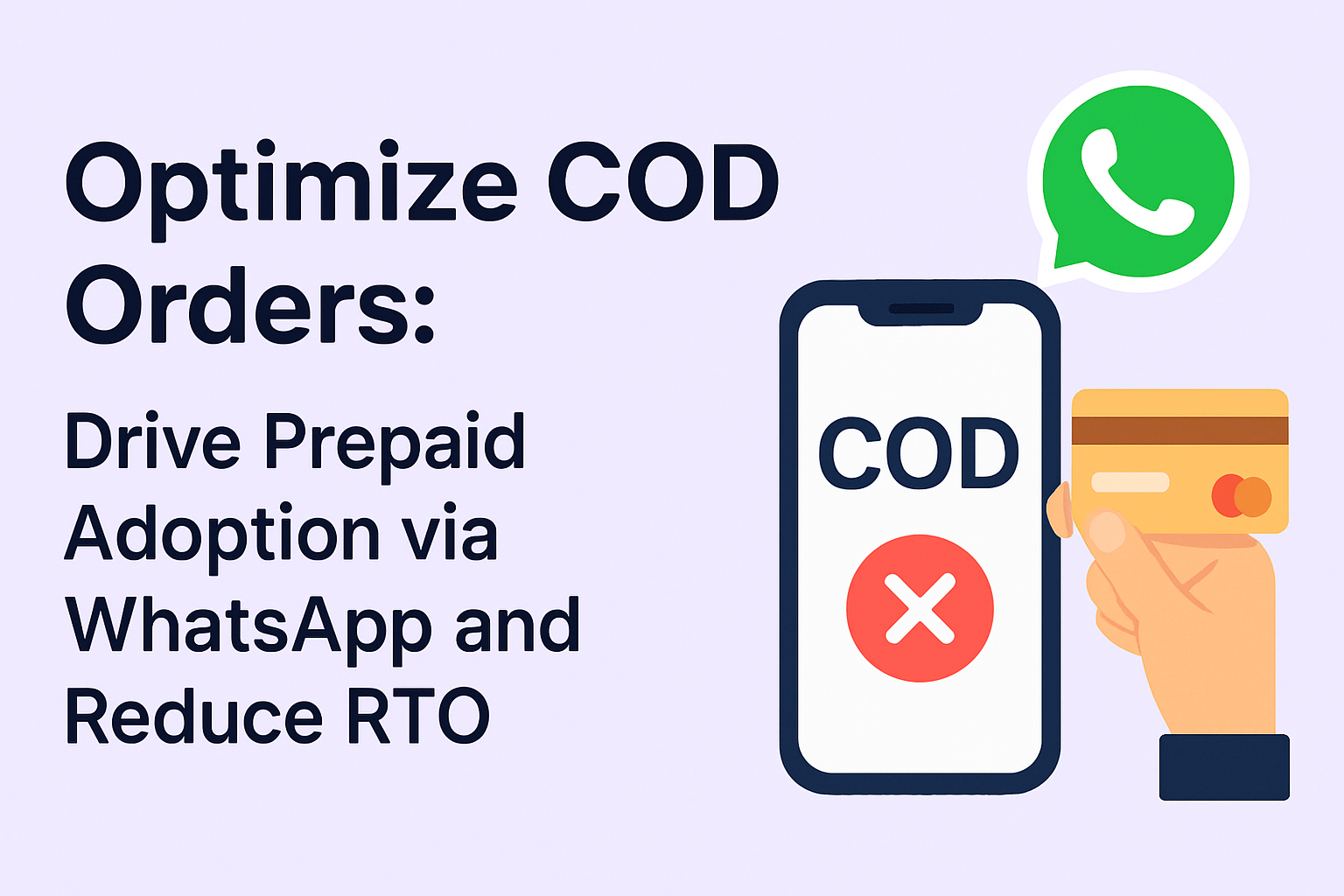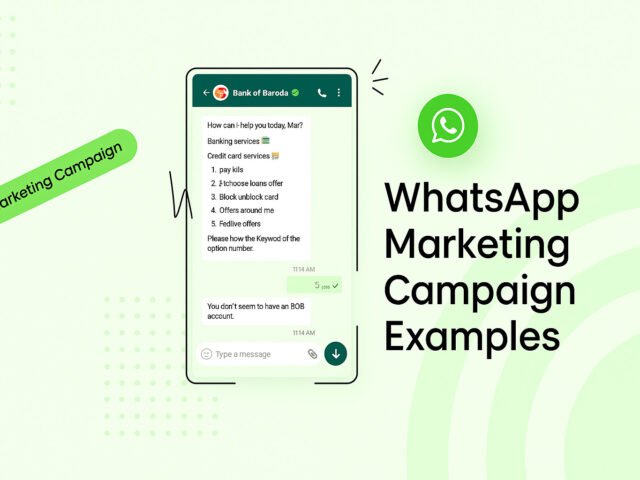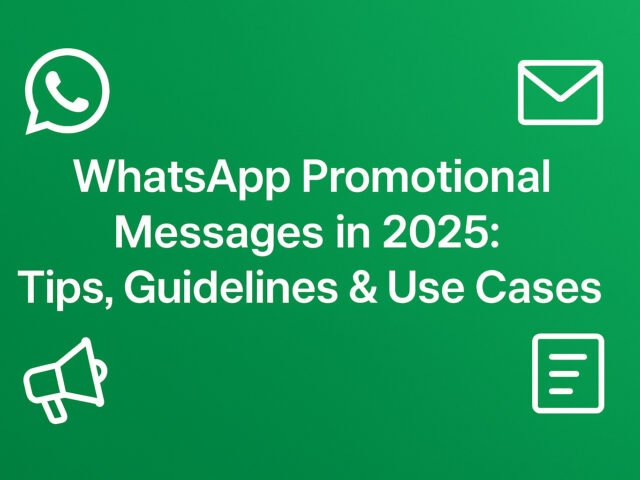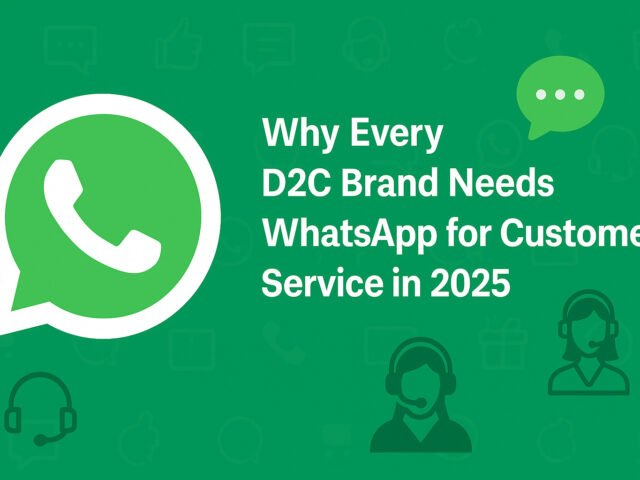Introduction
Cash-on-Delivery (COD) has long been the preferred payment method in India’s e-commerce ecosystem, especially for Direct-to-Consumer (D2C) brands. However, the convenience it offers customers often comes at a high operational cost: Return to Origin (RTO). RTO not only results in lost sales but also increases logistics expenses, warehouse load, and product damage risks.
Today, forward-thinking D2C brands are leveraging WhatsApp Marketing, COD verification techniques, and NDR (Non-Delivery Report) workflows to convert cash-on-delivery orders to prepaid, significantly reducing RTO. This blog will guide you on how to do just that.
What is RTO, and why does COD make it Worse
Return to Origin (RTO) occurs when an order is shipped but fails to reach the customer, prompting its return to the seller. With COD orders, RTO rates are 2–3x higher than prepaid orders due to:
- Customer unavailability
- Payment refusal
- Fake orders or non-serious buyers
- Change of mind before delivery
These issues not only delay order cycles but also eat into profit margins.
Why COD Orders Fail: Key Triggers
Missed deliveries, unverified addresses, and lack of customer intent are among the top reasons COD orders fail. Often, customers place COD orders impulsively with no real intention to complete the purchase. By failing to validate customer intent, brands set themselves up for higher RTOs and operational inefficiencies.
WhatsApp Marketing: A Game-Changer for COD-to-Prepaid Conversion
Why WhatsApp Works for D2C Brands
- 98% open rates and quick response times
- Familiarity and trust among Indian users
- Seamless integration with CRM and payment tools
- Automation capabilities for scale
WhatsApp isn’t just a support channel—it’s a conversion machine when used strategically.
NDR Management: Stop RTO Before It Happens
Understanding NDRs
Non-Delivery Reports (NDRs) are triggered when a delivery attempt fails. Timely NDR resolution helps brands avoid automatic returns and gives another chance to salvage the sale.
COD Verification: Filter Out Low-Intent Orders
Verification Tools That Work
- IVR Calls: Automated calls that ask customers to confirm their order via keypad input.
- SMS or WhatsApp OTPs: Simple 4-digit codes to verify intent before dispatch.
Brands using verification have reported up to a 35% reduction in fake or frivolous COD orders.
Boost Engagement Before Delivery
Use interactive tools to build a relationship with the buyer pre-delivery:
- Mini-surveys: Confirm interest or delivery time preferences via WhatsApp polls.
- Faster Delivery Options: Offer prepaid buyers faster delivery windows or priority handling.
- Cross-sell opportunities: Suggest prepaid bundles with discounts for upselling.
Performance Metrics to Track
Keep an eye on these metrics:
- COD-to-Prepaid Conversion Rate
- Overall RTO Rate
- NDR Resolved vs Returned Orders
- Click-through & Payment Completion Rates on WhatsApp
These KPIs will inform you whether your strategy is reducing RTO effectively.
Conclusion
Reducing RTO and converting COD to prepaid isn’t just about saving costs—it’s about optimizing customer experience, improving cash flow, and scaling sustainably. By combining WhatsApp marketing, COD verification, and smart NDR management, D2C brands can significantly boost prepaid adoption while maintaining operational efficiency.
FAQs
What is the biggest reason for high RTO in COD orders?
Unverified buyer intent and fake orders are the leading causes.
How much RTO can WhatsApp marketing reduce?
Brands have seen up to a 30% reduction when using automated WhatsApp workflows.
Is NDR management only useful for COD orders?
While it’s crucial for COD, it also helps recover failed prepaid deliveries with a better customer experience.
What tools help automate COD verification and NDR management?
Platforms like The Bot Mode, Interakt, and Gupshup offer full-stack WhatsApp automation for D2C needs.


















